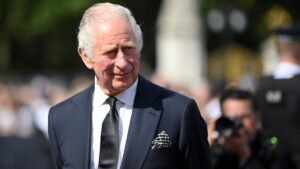Government ministers have introduced a new definition of extremism, which will lead to certain groups being barred from receiving government funding and interacting with officials.
Under this definition, groups advocating ideologies rooted in “violence, hatred, or intolerance” will be targeted, although it will not result in criminal charges.
Michael Gove, the Communities Secretary, highlighted a significant increase in extremism following the Israel-Gaza conflict, emphasizing the genuine threat it poses to the United Kingdom.
However, recent government rhetoric on extremism has faced criticism from civil liberties advocates, community organizations, and Members of Parliament.
Jonathan Hall, the independent reviewer of terrorism legislation appointed by the government, cautioned that the new policy could tarnish the UK’s reputation internationally, as it might be perceived as undemocratic.
The specific groups that the government intends to categorize as extremist remain undisclosed; however, officials have indicated that Islamists and neo-Nazis may be among the targets. A detailed list is expected to be released by the government in the forthcoming weeks.
Zara Mohammed, the leader of the Muslim Council of Britain, expressed concerns to BBC Newsnight, warning that the new definition could result in the unjust targeting of Muslim communities.
Already, the government has reduced its interactions with the MCB, the largest Muslim organization in Britain, and has imposed limitations on its engagements with various governmental departments.
Effective Thursday, a new definition of extremism will be implemented, delineating it as “the promotion or advocacy of an ideology founded on violence, hatred, or intolerance, with the aim to:
nullify or dismantle the fundamental rights and freedoms of others; or
undermine, overturn, or supplant the UK’s liberal parliamentary democracy and democratic rights; or
intentionally foster an enabling environment for others to achieve the objectives outlined in (1) or (2).”
This revised definition replaces the previous one established in 2011 under the Prevent strategy, which characterized extremism as “vocal or active opposition to fundamental British values, including democracy, the rule of law, individual liberty, and mutual respect and tolerance of different faiths and beliefs.”
The government asserts that the new definition is “more precise and focused,” aiming to clearly delineate how extremism manifests in behaviors.
It emphasizes that there will be a stringent threshold for categorizing individuals as extremists, with the policy explicitly excluding those with “private, peaceful beliefs.”
Unlike terrorist organizations, individuals or organizations designated as extremist will not face criminal charges. Instead, they will be prohibited from engaging in government contact and accessing government funding.
In conjunction with the revised definition, the establishment of the Counter-Extremism Centre of Excellence has been announced. This unit will be tasked with gathering intelligence and identifying extremist entities.
Entities or individuals identified as extremist have the right to request a reassessment and present new evidence for review.
Should they continue to contest the government’s determination, they retain the option to contest the decision through a potentially expensive judicial review.
Mr. Gove, upon unveiling the alteration, highlighted the need to address the threat posed by extremists to the values of inclusivity and tolerance.
“In safeguarding our democratic principles, it is imperative to both strengthen our shared values and to accurately and decisively identify the hazards posed by extremism,” he remarked.



























